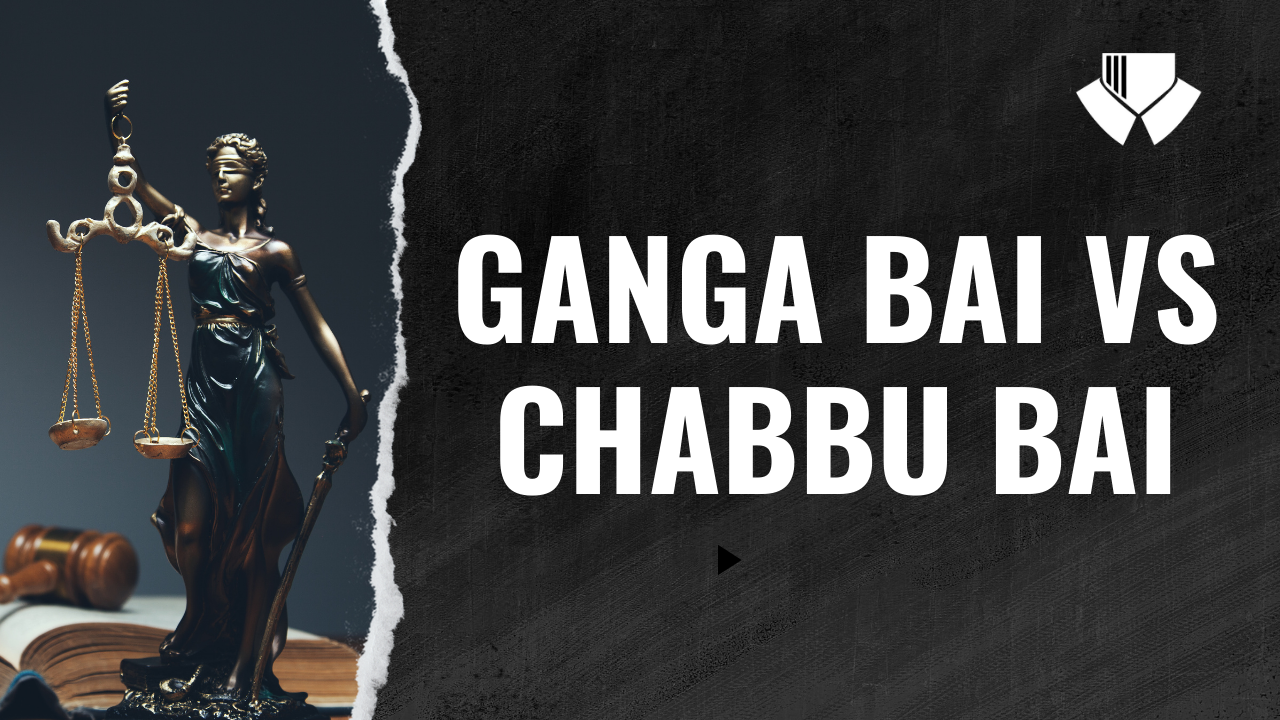This case analysis is written by Sohini Chakraborty, a 3rd year law student of Amity University, Kolkata.
CITATION: 1982 AIR 20, 1982 SCR (1)1176
COURT JUDGES: PATHAK, R.S., DESAI D.A.
BACKGROUND OF THE CASE:
The respondent took a loan on January 7,1953 from the appellant of Rs. 2000 in need of money. It was concluded that all the while she ought to execute an ostensible report of offer and lease note, of her home arranged close Sarafa Bazar in Amravati. She said that the documents were never meant to be used, and that the rent she was paying actually reflected interest at an 18% rate on the loan. All throughout, the respondent-maintained control of the home property and occasionally completed repairs. The respondent filed a lawsuit for a declaration that she was and would remain the owner of the home property because the appellant had been attempting to enforce the document as a sale deed by filing suits in the Court of Small Causes for the recovery of rent, and the said suits had resulted in a decree. The appellant argued in her defense that ownership of the dwelling property had been transferred to her and that the sale deed indicated a legitimate transaction. Further, it was argued that the decisions issued by the Court of Small Causes served as res judicata and prevented the respondent from arguing that the sale deed was only a formality.
ISSUES:
- The ownership of a particular plot of land was the main issue in the case. The land was allegedly owned by both the plaintiff and the defendant.
- The lawsuit concerned issues of possession and ownership. The claimant claimed to be the legitimate owner of the land and to have been in possession of it. These assertions were contested by the defendant, who also claimed to have title and possession rights.
- In this immediate lawsuit, the issue is whether these conclusions serve as res judicata.
CONTENTIONS OF THE PETITIONER:
- The appellant claimed in each lawsuit that the respondent was her tenant and she was the property’s owner.
- The appellant argued that the sale document indicated a legitimate business transaction and that ownership of the house property had been transferred to the appellant.
- The Court of Small Causes’ judgements, it was said, served as res judicata and prevented the respondent from arguing that the sale deed represented only a formality. Additionally, the Indian Evidence Act’s section 92 was cited to bar the respondent from providing the true nature of the transaction and the sale deed was a supposed transaction.
CONTENTIONS OF THE RESPONDENT:
- The respondent claimed that by initiating lawsuits in the Court of Small Causes for the recovery of rent, the appellant was attempting to enforce the instrument as a sale deed.
- She felt it necessary to submit the current lawsuit in order to be declared the owner of the dwelling property because two previous lawsuits had resulted in decrees.
- Respondent fought back against the lawsuits.
JUDGEMENT:
The High Court rejected the res judicata argument on the grounds that Section 11 of the Code of Civil Procedure applied in this case, a Court of Small Causes is not the appropriate court to hear a lawsuit seeking a declaration of title to immovable property, and the court that issued the decrees cited by the appellant was ineligible to hear the current lawsuit, violating Section 11’s imperative requirement. In Gulabchand Chhotalal Parikh v. State of Bombay[1], this Court held that the provisions of Section 11 of the Code were not all-inclusive with regard to an earlier decision acting as res judicata between the same parties on the same matter in controversy in a subsequent regular suit. On the general principles of res judicata, any prior decision on a matter in controversy, decided after full contest or after providing fair opportunity to the parties to present their arguments. A claim of res judicata cannot be based on a topic that is incidentally or collaterally involved in the decision of the question that is immediately at issue in the case. Long-standing precedent holds that a title issue in a Small Cause lawsuit can only be viewed as incidental to the main dispute and cannot serve as precedent for a later lawsuit in which the issue of title is expressly presented.
Oral evidence to demonstrate that the sale deed was not intended to be acted upon was not prohibited by section 92 of the Evidence Act since it fell under the exception set forth in proviso (4) to that provision. The Trial Court erred in denying the respondent’s request to include parole evidence in support of her argument that the sale deed dated January 7, 1953 was a forgery and was never intended to be used. The conclusion of the court below in favor of the respondent must be adopted if the parole evidence is admissible, which is not in doubt. It follows that the appellant’s second argument is similarly invalid.
As a result, the appeal is rejected along with costs.
CONCLUSION:
After an immovable property title determination has been made by a Court of Small Causes, res judicata cannot be raised as a defense in a future civil action to establish or enforce any right or interest in immovable property. The law states that the nature and aim of the transaction must be determined by the provisions of the contract itself, and no evidence of an oral agreement or declaration can be allowed as between the parties to such a document with the intention of contradicting or changing its terms.
[1] Gulabchand Chhotalal Parikh vs State of Bombay 1965 A.I.R. 1153


